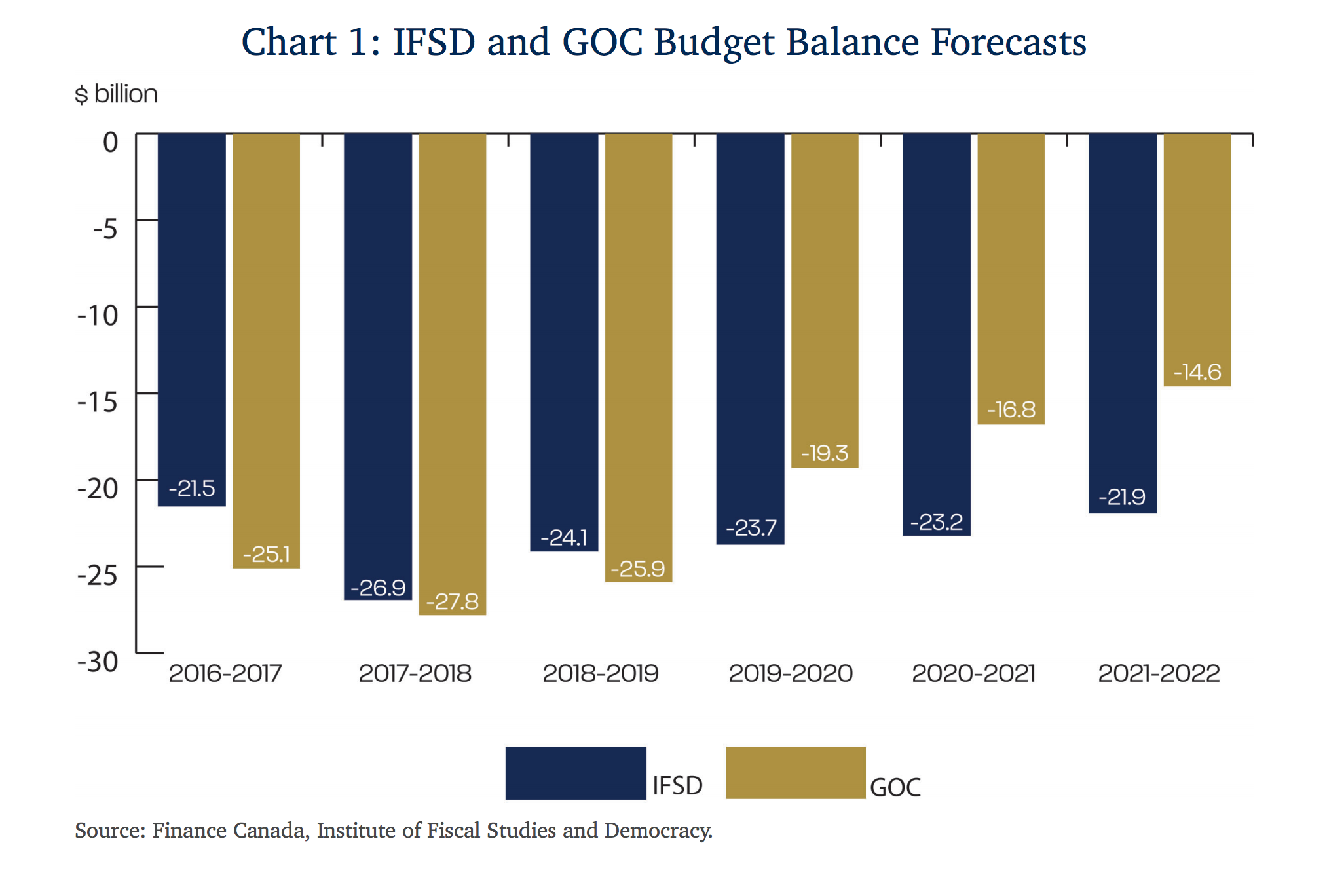by Kevin Page
It is mid-February. The new fiscal year starts April 1. We wait for a signal from our federal Finance Minister on a budget date. The clock ticks.
Why the delay? Is it a result of uncertainty around the outlook? Are Cabinet ministers and public servants struggling with new policy and program details?
News alert (or not) – the fiscal outlook has deteriorated significantly since the current federal government took office. Some of this deterioration comes from the moribund economic environment. Some of this deterioration is a policy choice – a strategy to boost a sagging economy with the nation’s fiscal credit card. Either way, program spending and debt are way up. Future generations beware. And to top it all off, global political uncertainty is hitting new highs. Your guesses may be as good as any as to where the US and EU are headed.
IFSD just released its first fiscal outlook. Relative to the Fall Economic Statement, we see the deficit coming in a little lower over the next few years, but higher in the final years of the forecast. Our view is that without policy changes we are stuck with deficits north of $20 billion. Why? Two reasons. First, higher interest rates and debt will lead to higher debt charges. Second, we think it is going to be hard for this government to get direct program spending under control within the next couple of years.

What is the appropriate fiscal strategy? To quote former Finance Deputy Minister Scott Clark, we need a fiscal plan that is “prudent, reasonable, credible and sustainable”. The current strategy would not score well by most of these measures. In our IFSD fiscal outlook, Randall Bartlett and I make the case for a fiscal charter in the spirit of recent efforts in the UK and Australia. The federal government needs a fiscal policy reset – a well-defined fiscal purpose with deficit and spending targets that bite and analysis to back up policy decisions.
The clock ticks.


